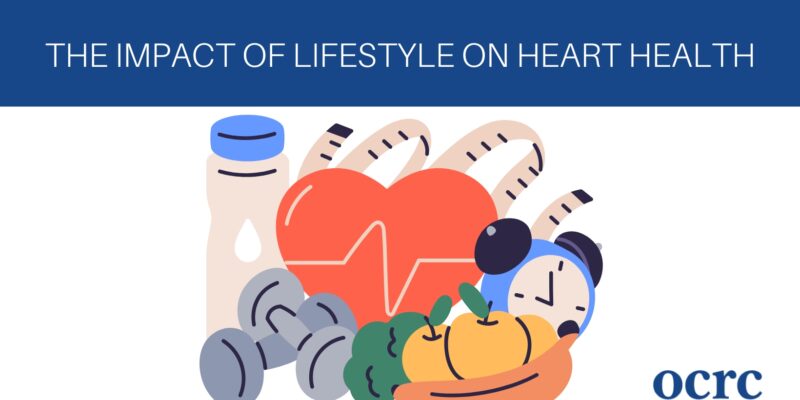
In the United States, one person dies every 33 seconds from cardiovascular disease. Heart disease remains the leading cause of death in men and women of all racial and ethnic backgrounds. Although genetics do play a role in the development of heart disease, lifestyle choices have the highest impact — which means preventing it is possible. Learn more about the impact your lifestyle has on heart health and what changes you can make.
Sitting for long periods has an impact on your entire body, including your heart. It can also cause your blood to slow down, allowing fatty acids to build up along the blood vessels and putting you at a higher risk of developing heart disease.
Sitting for too long can also affect your insulin resistance and increase your risk of developing diabetes, which plays a role in heart disease.
When you sit for long periods, your body’s production of lipoprotein lipase — the enzyme that breaks down fat in your blood — drops significantly. Instead of breaking fat down, your body stores it.
Smoking is a major cause of heart disease, leading to one in four deaths from cardiovascular issues. Cigarette and cigar smoke contain chemicals that make the cells lining the blood vessels swell, potentially causing atherosclerosis, which is when blood vessels become narrow and less flexible because of plaque buildup.
The chemicals in cigarette smoke also thicken your blood, putting you at risk of developing clots that can lead to heart attacks. Smoking increases the risk of peripheral arterial disease, too, which is when blood vessels narrow, impeding a steady flow of blood to your feet, hands, arms, and legs.
Drinking alcohol is a major risk factor in the development of high blood pressure. High blood pressure leads your blood to pump with more force through your arteries and blood vessels, s
Alcohol increases hormones that prompt blood vessels to constrict while also affecting the nervous system, which helps to regulate blood pressure. It also affects the receptors in blood vessels near the heart that help maintain blood pressure. Alcohol increases the production of stress hormones, including cortisol, which spikes blood pressure.
Along with all of these factors, alcohol consumption can lead to weight gain, which is another risk factor in the development of heart disease.
Stress causes the release of hormones like cortisol, which increases inflammation throughout the body. High levels of cortisol over a long period can hike up blood sugar, blood cholesterol, blood pressure, and triglycerides. All of these are common factors in the development of heart disease.
High stress levels also cause changes in your system that can make the buildup of plaque in your blood vessels more likely. Stress impacts the amount of blood that flows to your heart, so it doesn’t get as much oxygen or blood as it needs.
Eating foods that are too high in saturated or trans fats causes cholesterol to build up in your arteries, narrowing them and making heart issues more likely to occur.
Diets high in unhealthy fats may quickly lead to obesity, which is another factor in the development of heart disease. A higher body weight can lead to high blood pressure as well as insulin resistance, which causes diabetes. All of these contribute to the development of heart disease.
Not getting enough sleep leaves you more than just tired — it also impacts your heart health. If you sleep less than seven hours a night, you can develop high blood pressure issues as well as insulin resistance.
Lack of sleep also puts you at risk of developing obesity — it affects the parts of the brain that control hunger. Being overweight impacts your heart health, too.
A great deal of maintaining heart health comes down to your day-to-day decisions. By making healthier choices, including drinking less alcohol, adjusting your diet, and tossing those cigarettes away, you can improve how your whole body functions and feels.
At Orlando Clinical Research Center, we offer the chance to participate in many studies that strive to improve the prognosis for common medical issues. To learn more about our current studies, contact us today.
